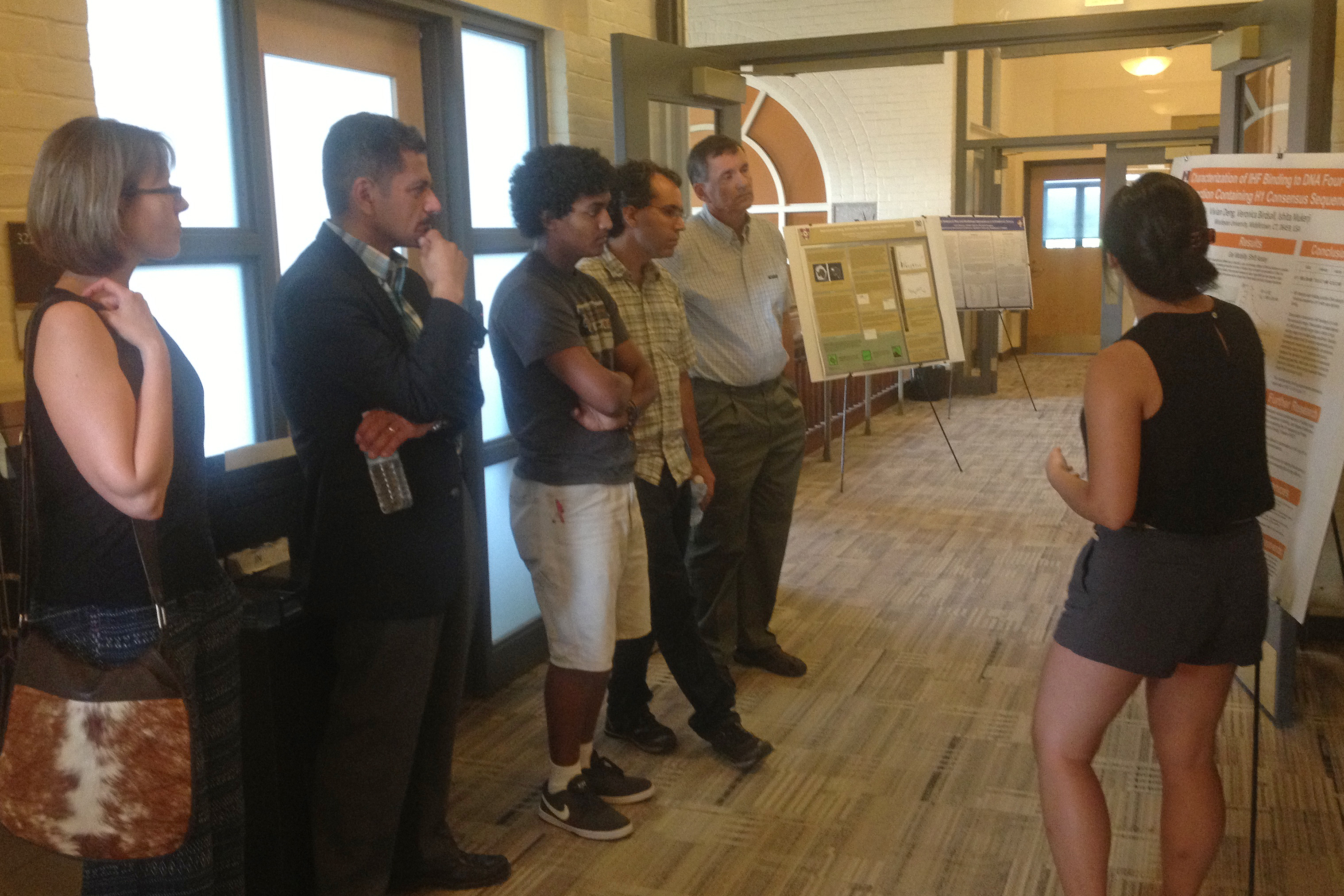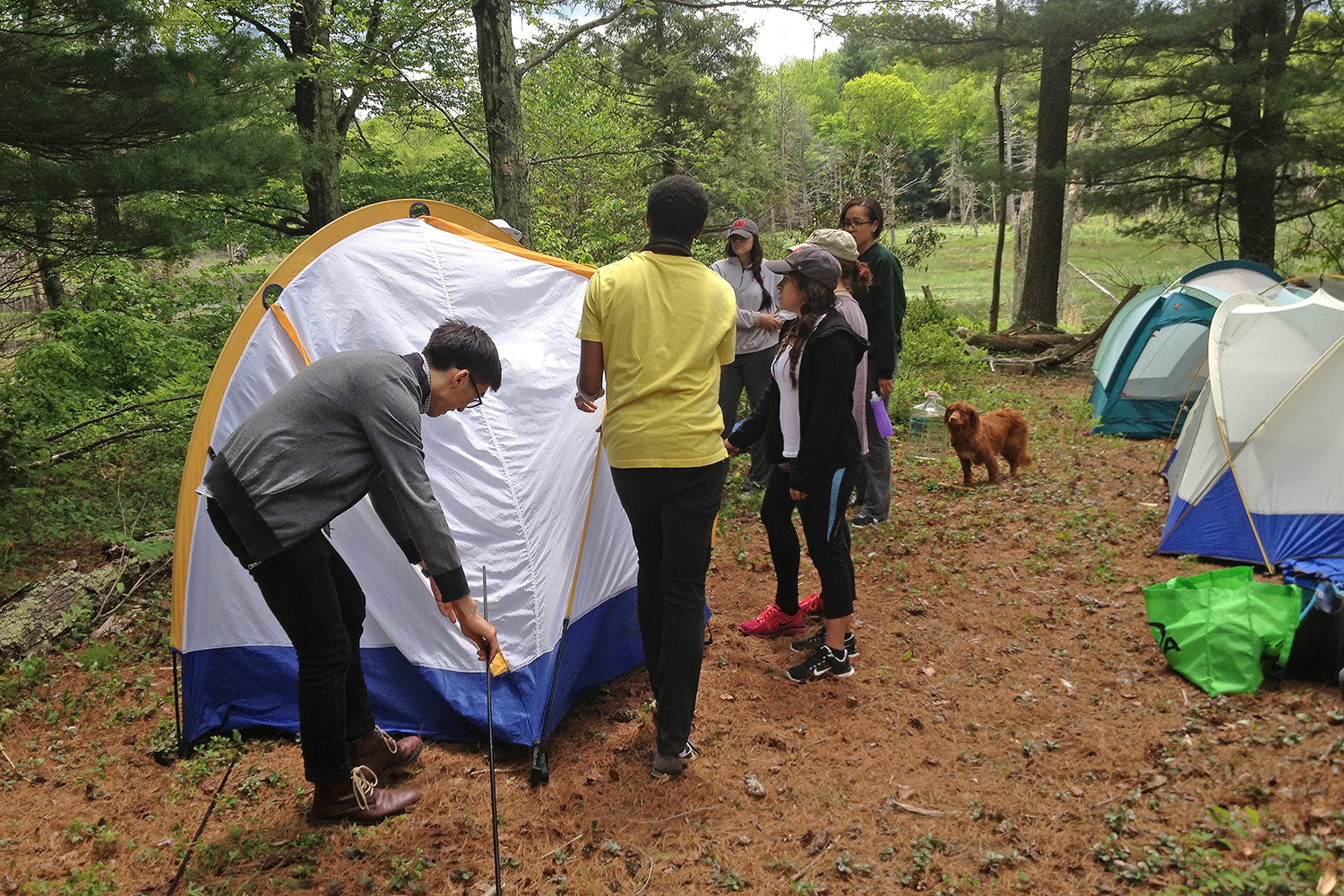McNair Summer Fellows Perform Research, Prepare for Grad School
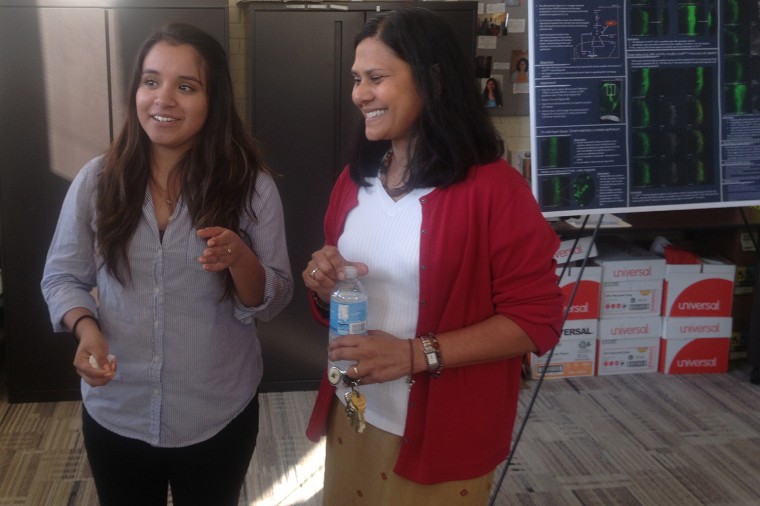
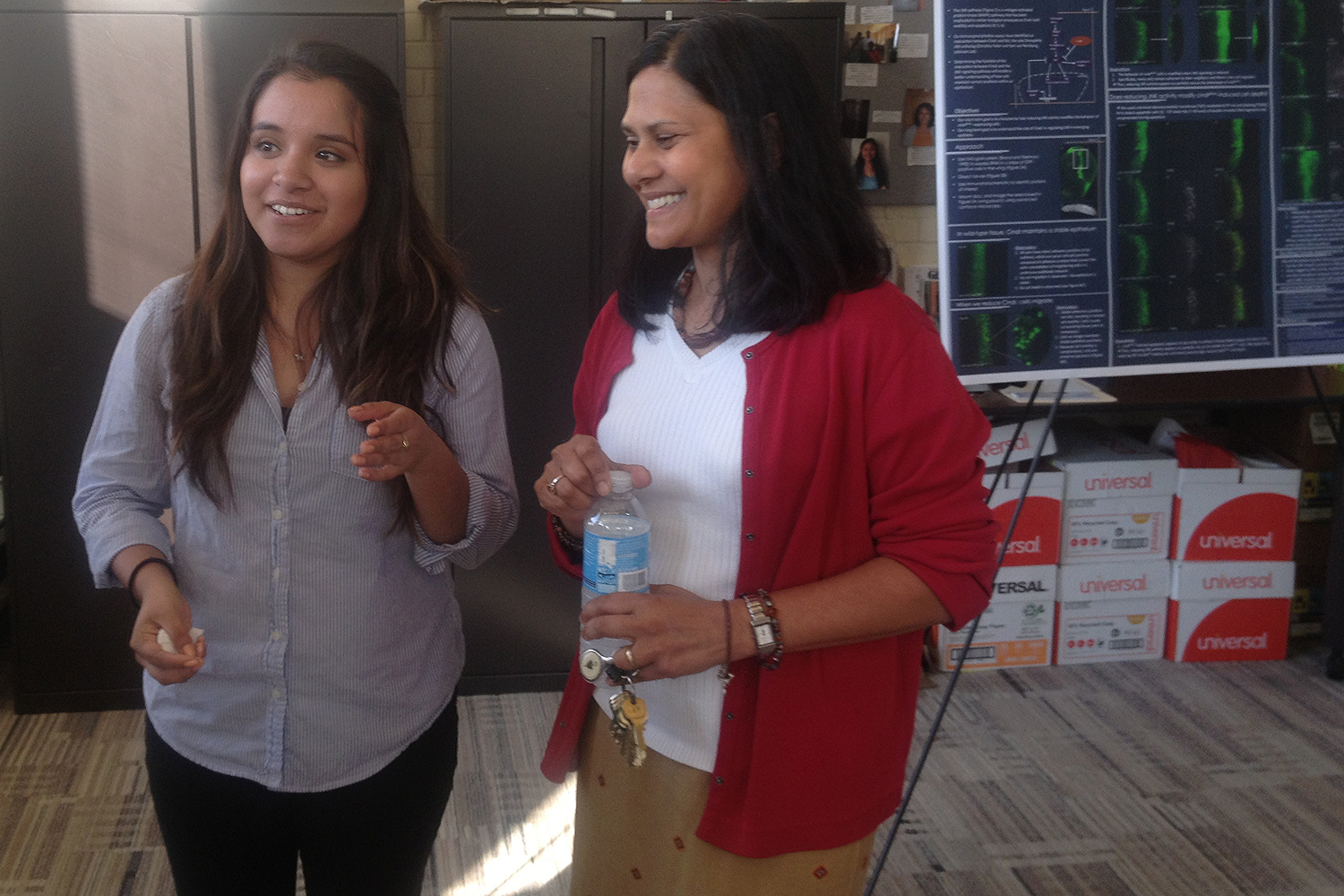
This summer, 13 students had an opportunity to work closely with a faculty mentor to conduct research, as well as get a leg up in the grad school application process, through the McNair Program. For 10 weeks, they studied topics in psychology and neuroscience, earth and environmental science, biology, physics, and science in society.
The McNair Fellows, all rising juniors and seniors, are either low-income, first-generation college students or members of a group traditionally underrepresented in graduate school. The fellows may be engaged in research in any field, though the vast majority focus their studies in the sciences. This summer, eight fellows were fully funded by McNair, three were partially funded by McNair, and two others received funding from other sources, according to Ronnie Hendrix, associate director of the McNair Program.
The Ronald E. McNair Post Baccalaureate Achievement Program is funded by the U.S. Department of Education. Wesleyan was first selected to participate in the program in 1994, and is currently in its third phase of funding. In 2012, Wesleyan received a new five-year, $1.1 million grant to support the program.
“The ultimate goal of the program is to create a more diverse professorate, by helping these students prepare for graduate school,” explained Suzanne O’Connell, professor of earth and environmental sciences, and faculty director of the McNair Program.
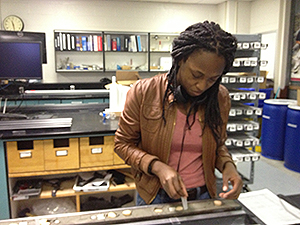
In addition to conducting research with a faculty member, the fellows visited grad schools (Yale, Columbia and the University of New Hampshire), and participated in workshops on professional skills and the grad school application process. Topics covered included writing the statement of purpose and CV/resume, preparing for the GRE, finding funding for grad school, the grad school admission process, how to conduct and create effective scientific poster and/or PowerPoint presentations, and a financial management/literacy workshop. Seven fellows attended the Buffalo University McNair Conference from July 24-26, where two conducted oral presentations and five conducted poster sessions. Ten of the fellows also presented their research at a McNair culminating dinner and symposium at Wesleyan on July 30, and the three other fellows attended a McNair symposium at the University of California-Berkeley, July 31-Aug. 3. Many of the fellows also participated in the Research in the Sciences university-wide poster session held on July 30.
Building a close, working relationship with a faculty member is a key component of the program.
“It’s great for students to develop a strong rapport with a McNair faculty mentor,” said Hendrix. “It helps break down barriers, and allows students to picture themselves as a professor. Especially for our students, who mostly don’t have a family background in academia, this helps familiarize them with that world. The faculty stay very involved with the students, and help them with grad school applications process.”
In addition, students are able to get letters of recommendation for grad school from faculty members who know them well and are familiar with their work, said O’Connell.
The summer fellows may continue to work with their McNair faculty mentors over the coming school year, though their annual stipend is capped at $2,800.
LaNell Williams ’15, who worked this summer with Christina Othon, assistant professor of physics, said that joining the McNair Program “has been one of the best and most life-changing decisions I could have ever made.”
During her first two years at Wesleyan, she found herself feeling lost, lacking the kind of community she was seeking for guidance and support. Williams dreamed of studying physics, but found it difficult coming from the academic background she had.
“But once I joined the McNair Program, I was surrounded by a group of people who supported—and continue to support—me in my development in becoming a scientist and researcher,” said Williams. “I also learned one more thing. I absolutely love research! And that continued to grow as I developed in Prof. Othon’s lab,” where they worked together on lipid dynamics, studying the interactions of cholesterol and DPPC mixed monolayers.
“This experience introduced me to the field of biophysics, which is something I hadn’t thought about before joining the lab and is a field that I hope to continue in on for graduate school,” said Williams.
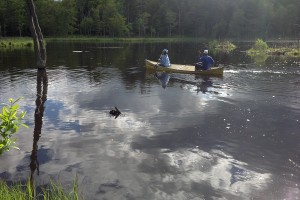
She added that the stipend she received through McNair helped offset some of the financial costs associated with going to Wesleyan, and that the grad school tours, GRE prep and academic skills course have all been helpful.
“Overall, the McNair program has been a huge player in my development here at Wesleyan… it gave me a community and it gave me access to resources I wouldn’t have gotten had I not joined the program,” Williams said.
Shelby Harper ’16 worked this summer with Don Oliver, the Daniel Ayres Professor of Biology, professor of molecular biology and biochemistry.
“I initially wanted to participate in McNair because the core values of the program hit so close to home for me. I have been on my own since I was 15 and was the only child in my family to graduate high school and attend college, so adversity is something I know all too well,” she said.
Harper worked with Oliver on his research concerning bacterial protein translocation through the periplasmic membrane utilizing the Sec translocase.
“The work was demanding, and honestly broke me down many times throughout the summer. His expectations of me throughout the program were high, but that pushed me to work harder and harder each and every day. Coming into the lab I knew absolutely nothing about his research, and within just 10 weeks of intensive research I feel strong and knowledgeable about the subject matter,” she said. “Out of this experience I gained respect for those who spend their lives researching, and learned ways to better embrace and face adversity.”
Psyche Loui, assistant professor of psychology, assistant professor of neuroscience and behavior, said that serving as a faculty mentor in the McNair program was a “wonderful experience” for her and the student she mentored. As a music and psychology double major, the student, Harim Jung ’16, was a perfect fit for Loui’s lab. He assisted with data analysis, extensive literature reviews and writing for two different studies, and lay the groundwork for his senior thesis, which will involve recording EEGs during music listening.
Loui said, “It was fun to interact with the McNair Fellows through several events over the summer. It was both rewarding and inspiring for me to see the great work that Ronnie and his team are doing to help the McNair Fellows in their professional careers. Had I known about such a program when I was applying for graduate school, I would have loved to apply!”
Learn more about Wesleyan’s McNair Program here.
